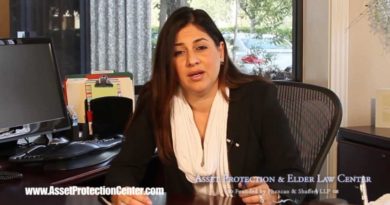Second Marriage Planning — New York Estate Planning & Elder Law Blog — July 12, 2024
In second marriage planning, a co-trustee is sometimes recommended on the death of the first spouse. While both spouses are living and competent they run their trust or trusts together. But when one spouse dies, what prevents the other spouse from diverting all of the assets to their own children? Nothing at all, if they alone are in charge. While most people are honorable, and many are certain their spouse would never do such a thing, strange things often happen later in life. A spouse may become forgetful, delusional or senile or may be influenced by other parties. Not only that, but the children of the deceased spouse tend to feel very insecure when they find out their stepparent is in charge of all of the couple’s assets.
If you choose one of the deceased spouse’s children to act as co-trustee with the surviving spouse there is a conflict that exists whereby the stepchild may be reluctant to spend assets for the surviving spouse, because whatever is spent on that spouse comes out of the child’s inheritance. Then what if stepparent gets remarried? How will the stepchild trustee react to that event? What if it turns out the stepchild liked the stepparent when his parent was living, but not so much afterwards?
Here is where the lawyer as co-trustee may provide an ideal solution. When one parent dies, the lawyer steps in as co-trustee with the surviving spouse. The lawyer helps the stepparent to invest for their own benefit as well as making sure the principal grows to offset inflation, for the benefit of the deceased spouse’s heirs. The stepparent in this case takes care of all their business privately with their lawyer. The trusts cannot be raided. These protections may also be extended for IRA and 401(k) money passing to the spouse through the use of the “IRA Contract”. Surviving spouse agrees ahead of time that they will make an irrevocable designation of the deceased spouse’s children as beneficiaries when the IRA is left to the surviving spouse, and further agrees that any withdrawals in excess of the required minimum distribution (RMD) may only be made on consent of the lawyer.
QTIP, in connection with trusts, stands for “Qualified Terminable Interest Property”. These trusts are ideal for those who are in second or later marriages and are confronted with balancing the needs of their surviving spouse when they die while still providing an inheritance for their children from a prior marriage.
Essentially, this type of trust continues free of estate tax for a surviving spouse, providing them with income for life (i.e. interest and dividends) and principal, if needed, with either the surviving spouse themselves or someone else in charge as trustee or both the spouse and someone else as co-trustees. The someone else may be another family member, a bank or trust company or a lawyer or other professional, such as an accountant. The financial advisor, while often a close confidant and long-serving professional, is not advised in cases where they are still handling the family finances due to a conflict of interest. In addition, many financial institutions prohibit their advisors from acting as trustees.
QTIP trusts allow the grantor (creator) of the trust to stipulate where the assets go after the surviving spouse dies, presumably to the grantor’s children from a prior marriage.
QTIP trust assets are sheltered from any liabilities of the surviving spouse and professional management may be arranged. There are also major psychological and social benefits in that (1) the children from the prior marriage know that their inheritance is protected from being squandered or diverted, and (2) they may continue and even enhance their relationship with the surviving stepparent once the fear of being left out has been removed.
While the surviving spouse may legally act as sole trustee of the QTIP trust, for the foregoing social reasons this may not be advisable.
Some of the rules associated with a QTIP trust are that all income must be paid out to the surviving spouse every year, the spouse must be a US citizen, and there may be no other beneficiaries during the surviving spouse’s lifetime.






